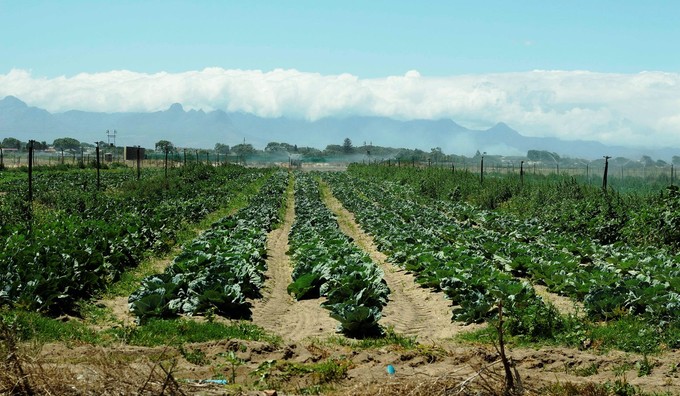

The minimum wage for farm workers is to go up 5.6% from 1 March. Archive photo: Masixole Feni
30 January 2018
The new minimum wage for farm workers of R3,169.19 a month is a “slap in the face” to workers, says the Commercial, Stevedore, Agricultural and Allied Workers Union (CSAAWU).
The Department of Labour announced last week that the minimum wages for farm and forestry workers would increase by 5.6% from 1 March. The hourly wage is up from R15.39 to R16.25, and the daily wage from R138.52 to R146.28. The weekly wage is now R731.41 and the monthly wage R3,169.19.
In a statement on Tuesday CSAAWU national organiser Karel Swart and deputy general secretary Deneco Dube said the union was “deeply disappointed”.
“For CSAAWU the new recommendations from the Department are not only a slap in the face of farm workers, but an indication too that government has still not grasped the severity of the crisis of poverty facing rural workers. This new wage recommendation is a direct impoverishment of farm workers.”
Millions of families would continue to live under the bread line, they said.
Colette Solomon, director of the Women on Farms project, said members were told about the new minimum wage last week and they were angry.
“From R138 to R146 is roughly a R7 increase. That cannot even buy a loaf of bread,” she said.
Solomon said with the drought many seasonal women workers were not working at all or were working shorter periods. “For example they are already packaging grapes, which is something that they would normally do later in the year.”
“The increase will make no difference. What we need is a living wage, something that people can survive on.”
She said as the main breadwinners in their homes the women were the ones who would have to “make the stretch” with the R7 a day increase.
Jahni de Villiers, head of Labour and Development at Agri SA, said the main reason for the low increase was that the inflation rate was low. The annual increase is based on the rate of inflation, which was 4.7% in the year from December 2016 to December 2017.
“But the national minimum wage is what we are watching at the moment. From Agri SA’s side we note the sectoral determination. We knew what was going to come, but we are bracing for the national minimum wage. It’s probably going to be in May and it’s going to be R20 an hour,” said de Villiers.